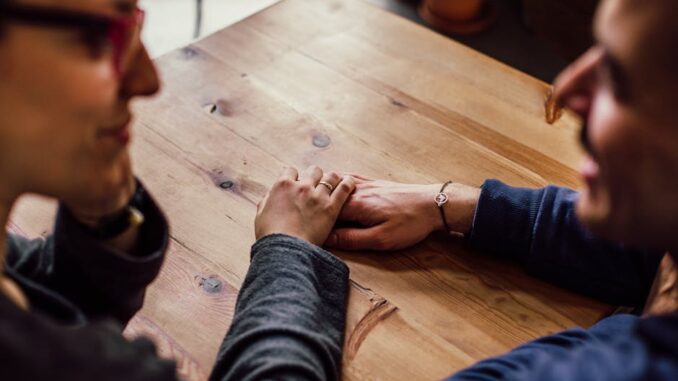
Summary
Support groups offer invaluable aid in addiction recovery by fostering community, shared experiences, and coping strategies. They provide a safe space for emotional expression, accountability, and motivation, reducing isolation and stigma while promoting long-term recovery. Discover the transformative power of support groups and embark on a journey towards a healthier, addiction-free life.
** Main Story**
Recovering from addiction? It can feel like scaling Everest, right? But here’s the thing: you absolutely don’t have to do it solo. Support groups? They’re not just meetings in a church basement. They’re a lifeline, a place where you connect with others who genuinely get what you’re going through. It’s about building a network that can seriously impact your path to lasting sobriety. Let’s dive into ten compelling reasons why joining a support group might just be a game-changer for you.
Finding Strength in Numbers: The Power of Shared Experience
-
You Are Not Alone: Addiction’s a master of isolation. It whispers lies, making you feel like you’re the only one battling these demons. Support groups, however, are the antidote. They shatter that illusion, connecting you with people who truly understand because they’ve walked a mile, or ten, in your shoes. That shared understanding? It breeds belonging, it squashes the loneliness, and it starts to chip away at that soul-crushing shame. Like, who hasn’t felt utterly alone at some point, right? I remember when I was consulting at a recovery center, and one of the patients said something that really stuck with me. He said ‘I thought I was the only one who felt like this’ and it made me realize just how powerful that feeling of isolation can be.
-
Empathy and Validation: Think of it as a judgment-free zone. In a support group, you’ll find a safe space to vent, to cry, to unleash all those pent-up emotions, fears, and anxieties. The magic? Hearing others share their stories, stories that mirror your own. That’s validation, my friend. It’s a powerful reminder that you’re not some weird anomaly; you’re human, and you’re not alone in this.
-
Learning from Others’ Journeys: It’s like having a cheat sheet to recovery. Support groups are a treasure trove of knowledge and experience. You’ve got members at every stage, sharing their coping mechanisms, their relapse prevention strategies, and even their stumbles. Because let’s be honest, we all stumble sometimes. Learning from their successes and, yeah, even their setbacks? That can seriously streamline your own recovery journey, making it less of a wild guess and more of a guided path.
Building a Foundation for Lasting Recovery: Practical Tools and Support
-
Accountability and Motivation: Regular attendance? That’s your secret weapon. Sharing your goals, no matter how small, with the group? It’s like making a promise not just to yourself, but to a room full of people who are rooting for you. And during those days when you’re dragging your feet, those people? They’re your cheerleaders, your accountability partners, the ones who help you stay on track.
-
Developing Healthy Coping Strategies: So, we all know addiction often stems from unhealthy ways of dealing with, well, life. Support groups? They’re like a toolbox for your mind. You’ll learn healthier ways to manage stress, to fight those cravings, and to identify your triggers. You’ll walk away with practical techniques to navigate those tricky situations without reaching for that old crutch.
-
Building a Sober Social Network: Recovery isn’t just about quitting a substance; it’s about rebuilding your life. And that includes your social life. Support groups offer a safe, supportive environment to connect with like-minded individuals who are just as committed to sobriety as you are. No more temptations, no more triggers lurking around every corner. Just genuine connections built on mutual respect and shared goals.
Breaking Down Barriers and Embracing a Brighter Future
-
Reducing Stigma and Shame: The stigma surrounding addiction? It’s a real barrier, often preventing people from even seeking help. Support groups? They’re on a mission to tear down those walls. By creating a space of acceptance, they challenge those harmful stigmas. Sharing your story, being vulnerable in a room full of supportive faces? It can be unbelievably liberating. It’s about reclaiming your narrative and owning your recovery journey, shame-free.
-
Boosting Self-Esteem and Confidence: Okay, recovery is a marathon, not a sprint, and setbacks? They happen. Support groups, though, they’re like your personal pep squad. They offer encouragement, they celebrate your wins (big or small), and they remind you of your strength when you’re feeling like you’re about to crumble. It’s a powerful way to build self-esteem and confidence in your ability to overcome whatever life throws your way.
-
Long-Term Support and Connection: It’s a lifelong gig, right? Recovery. Support groups? They’re not just a temporary fix; they’re a source of ongoing support. Even after you’ve completed formal treatment, attending meetings can help you stay grounded, navigate those inevitable life challenges, and celebrate your milestones with a community that gets it. I think it’s really important to keep this up, even after feeling ‘better’.
-
Access to Resources and Information: Support groups aren’t just about emotional support; they’re often a hub for valuable resources. Think information on treatment options, relapse prevention programs, community services – all the things that can make navigating the recovery process a little less daunting. Honestly, that sort of information can be invaluable.
Taking the First Step:
Finding a support group? It’s easier than you might think. A quick online search, a chat with your doctor or therapist – there are tons of options. Twelve-step programs, faith-based groups, secular organizations… There’s a group out there that aligns with your beliefs and preferences. So, yeah, recovery is a journey, not a destination. But support groups? They’re the compass, the map, and the team of fellow travelers that can help you stay on course, even when the road gets rough.


Be the first to comment